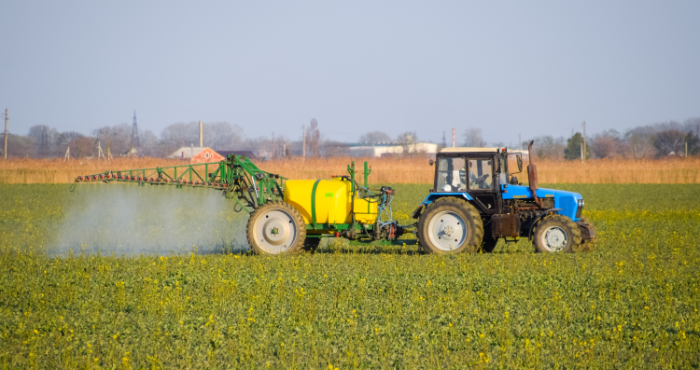The canola plant is derived from a variant of rapeseed, a versatile crop that has become a staple in modern agriculture and a key player in the global culinary scene.
The journey of canola begins with its predecessor, rapeseed. Historically, rapeseed was cultivated for various purposes, including lamp oil and lubricants due to its high oil content.
However, the high levels of erucic acid and glucosinolates in traditional rapeseed varieties posed health concerns for both humans and animals.
Canola – a term coined in the late 1970s as a contraction of “Canadian oil, low acid.” Canadian agricultural scientists successfully developed a low-erucic acid and low-glucosinolate rapeseed variety, resulting in the birth of the canola plant.
This groundbreaking achievement not only made the plant safe for consumption but also unlocked many agricultural and culinary possibilities.
Canola has emerged as a key player in modern agriculture, contributing significantly to the global oilseed market. The plant is known for its adaptability to various climates, making it a suitable candidate for cultivation in diverse regions.
Its relatively short growing season and resistance to pests further enhance its appeal to farmers worldwide.
The canola plant is prized for its oil-rich seeds, with oil extraction being a primary economic driver. Canola oil has gained popularity as a healthier alternative to traditional cooking oils due to its low saturated fat content and high levels of heart-healthy monounsaturated fats.
Beyond the oil, canola meal, a byproduct of oil extraction, serves as a valuable protein source for livestock feed.
In addition to its economic significance, the canola plant offers environmental benefits that contribute to sustainable agriculture. Canola is recognized for its ability to break pest and disease cycles, reducing the need for chemical inputs. Its deep root system helps prevent soil erosion, promoting soil health and fertility.
The plant’s ability to fix nitrogen from the atmosphere further reduces the reliance on synthetic fertilizers, mitigating the environmental impact of conventional agriculture.
As a rotation crop, canola enhances soil structure and nutrient levels, making it an ally in sustainable farming practices.
Canola’s influence extends far beyond the fields, making its mark in kitchens around the globe. Canola oil, with its light flavor and high smoke point, has become a preferred choice for cooking, baking, and frying. The oil’s neutral taste allows it to blend seamlessly with various ingredients, making it a versatile kitchen companion.
Beyond the oil, canola seeds themselves have found their way into the culinary spotlight. Roasted canola seeds serve as a nutritious snack, packed with protein, fiber, and essential nutrients.
Additionally, canola meal, a byproduct of oil extraction, is used in various food products, from baked goods to protein bars, contributing to the plant’s holistic utilization.
Canola’s popularity in the culinary world is not just about taste and versatility; it’s also about health. The oil extracted from canola seeds boasts a well-balanced nutritional profile.
It is low in saturated fat and high in heart-healthy monounsaturated fats, making it a heart-conscious choice.
Rich in omega-3 fatty acids and antioxidants, canola oil offers anti-inflammatory and cardiovascular benefits. The oil’s neutral taste makes it an excellent carrier for flavors, allowing the natural tastes of food to shine without overpowering them with a distinct oil flavor.
The canola plant, born out of scientific innovation, has transformed from a humble rapeseed variant into a global agricultural and culinary phenomenon. Its economic significance in agriculture, coupled with environmental benefits and culinary versatility, positions it as a golden wonder in the world of crops.
As consumers increasingly seek healthier and sustainable choices, the canola plant is a shining example of how science and agriculture can collaborate to bring about positive change on our plates and in our fields.
Please leave comments, questions or suggestions below.
Tom – Olive Oil Lover




